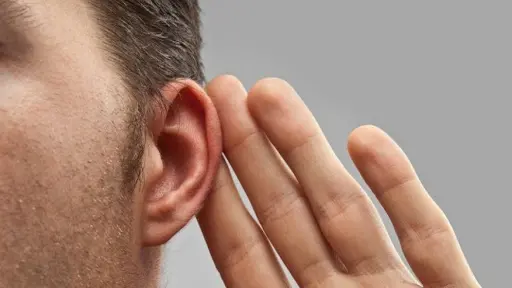- Home
- Medical news & Guidelines
- Anesthesiology
- Cardiology and CTVS
- Critical Care
- Dentistry
- Dermatology
- Diabetes and Endocrinology
- ENT
- Gastroenterology
- Medicine
- Nephrology
- Neurology
- Obstretics-Gynaecology
- Oncology
- Ophthalmology
- Orthopaedics
- Pediatrics-Neonatology
- Psychiatry
- Pulmonology
- Radiology
- Surgery
- Urology
- Laboratory Medicine
- Diet
- Nursing
- Paramedical
- Physiotherapy
- Health news
- Fact Check
- Bone Health Fact Check
- Brain Health Fact Check
- Cancer Related Fact Check
- Child Care Fact Check
- Dental and oral health fact check
- Diabetes and metabolic health fact check
- Diet and Nutrition Fact Check
- Eye and ENT Care Fact Check
- Fitness fact check
- Gut health fact check
- Heart health fact check
- Kidney health fact check
- Medical education fact check
- Men's health fact check
- Respiratory fact check
- Skin and hair care fact check
- Vaccine and Immunization fact check
- Women's health fact check
- AYUSH
- State News
- Andaman and Nicobar Islands
- Andhra Pradesh
- Arunachal Pradesh
- Assam
- Bihar
- Chandigarh
- Chattisgarh
- Dadra and Nagar Haveli
- Daman and Diu
- Delhi
- Goa
- Gujarat
- Haryana
- Himachal Pradesh
- Jammu & Kashmir
- Jharkhand
- Karnataka
- Kerala
- Ladakh
- Lakshadweep
- Madhya Pradesh
- Maharashtra
- Manipur
- Meghalaya
- Mizoram
- Nagaland
- Odisha
- Puducherry
- Punjab
- Rajasthan
- Sikkim
- Tamil Nadu
- Telangana
- Tripura
- Uttar Pradesh
- Uttrakhand
- West Bengal
- Medical Education
- Industry
Hearing impairment tied to decline in physical function with aging: JAMA

According to recent research, it has been found out that hearing impairment was associated with poorer performance, faster decline in physical function, and reduced walking endurance, thereby indicating that hearing impairment may be associated with poorer physical function with aging.
The study is published in the JAMA Network Open.
Hearing impairment, a common treatable condition, may contribute to poorer physical function with aging.
Hence, Pablo Martinez-Amezcua and colleagues from the Department of Epidemiology, Johns Hopkins Bloomberg School of Public Health, Baltimore, Maryland carried out the present study to assess whether hearing impairment is associated with poorer physical function, reduced walking endurance, and faster decline in physical function.
In this cohort study, cross-sectional and longitudinal analyses hearing thresholds (per 10 dB) were assessed with pure tone audiometry and categorized as normal hearing or mild, moderate, or severe hearing impairment.
Physical function was assessed using the short physical performance battery (SPPB), with composite scores ranging from 0 to 12. A composite score of 6 or less and a score for each component (balance, gait speed, and chair stands) of 2 or less indicated poor performance.
Walking endurance was assessed using a 2-minute fast-paced walk test. Tobit regression models adjusted for sociodemographic factors and medical history were used to calculate the mean differences in SPPB composite scores; logistic regression models, to estimate the odds ratios (ORs) of low SPPB composite and component scores; and linear mixed-effects models, to estimate the mean rate of change in SPPB composite scores over time.
The results showed that-
a. Of the 2956 participants (mean [SD] age, 79 [4.6] years) who attended study visit, 1722 (58.3%) were women, and 2356 (79.7%) were White.
b. As determined by pure tone audiometry, 973 (33%) participants had normal hearing, 1170 (40%) had mild hearing impairment, 692 (23%) had moderate hearing impairment, and 121 (4%) had severe hearing impairment.
c. In the Tobit regression model, severe hearing impairment was associated with a lower mean SPPB score (β, –0.82; 95% CI, –0.34 to –1.30) compared with normal hearing.
d. In fully adjusted logistic regression models, hearing impairment was associated with higher odds of low physical performance scores (severe impairment vs normal hearing: OR for composite physical performance, 2.51 [95% CI, 1.47-4.27]; OR for balance, 2.58 [95% CI, 1.62-4.12]; OR for gait speed, 2.11 [95% CI, 1.03-4.33]).
e. Over time (2 to 3 visits; maximum, 8.9 years), participants with hearing impairment had faster declines in SPPB compared with those with normal hearing (moderate hearing impairment × time interaction, –0.34 [–0.52 to –0.16]).
f. In adjusted models for walking endurance, participants with moderate or severe hearing impairment walked a mean distance of –2.81 m (95% CI, –5.45 to –0.17 m) and –5.31 m (95% CI, –10.20 to –0.36 m) than those with normal hearing, respectively, during the 2-minute walk test.
Therefore, the authors concluded that " hearing impairment was associated with poorer performance, faster decline in physical function, and reduced walking endurance. The results of the longitudinal analysis suggest that hearing impairment may be associated with poorer physical function with aging."
Dr. Nandita Mohan is a practicing pediatric dentist with more than 5 years of clinical work experience. Along with this, she is equally interested in keeping herself up to date about the latest developments in the field of medicine and dentistry which is the driving force for her to be in association with Medical Dialogues. She also has her name attached with many publications; both national and international. She has pursued her BDS from Rajiv Gandhi University of Health Sciences, Bangalore and later went to enter her dream specialty (MDS) in the Department of Pedodontics and Preventive Dentistry from Pt. B.D. Sharma University of Health Sciences. Through all the years of experience, her core interest in learning something new has never stopped. She can be contacted at editorial@medicaldialogues.in. Contact no. 011-43720751
Dr Kamal Kant Kohli-MBBS, DTCD- a chest specialist with more than 30 years of practice and a flair for writing clinical articles, Dr Kamal Kant Kohli joined Medical Dialogues as a Chief Editor of Medical News. Besides writing articles, as an editor, he proofreads and verifies all the medical content published on Medical Dialogues including those coming from journals, studies,medical conferences,guidelines etc. Email: drkohli@medicaldialogues.in. Contact no. 011-43720751


